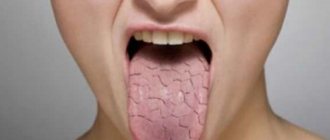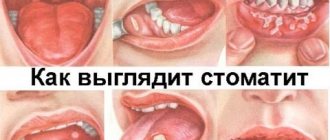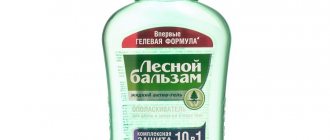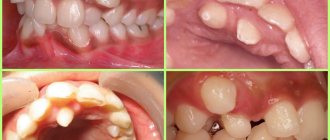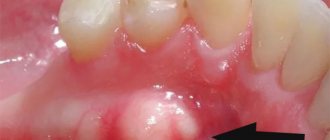A bitter taste in the mouth, as a common symptom, in itself says little about the possible physiological or pathological cause of its formation.
Only in aggregate, several manifestations can indicate a potential problem - all identified symptoms should be reported to a qualified gastroenterologist, who, based on additional tests, instrumental studies, patient complaints, external manifestations and differential diagnosis, can identify pathology and prescribe complex therapy.
Below are typical combinations of symptoms of bitterness in the mouth and other manifestations characteristic of a number of common pathological or special physiological conditions of the human body.
Causes of bitterness in the mouth and nausea
A known combination of symptoms may indicate a variety of physiological or pathological problems. The most typical of them are described below.
Poisoning
Classic signs of food poisoning are bitterness in the mouth and nausea, vomiting, severe spasmodic pain in the gastrointestinal tract. Symptoms usually do not disappear on their own and require complex treatment measures - from gastric lavage and the use of sorbents to hospitalization in the nearest hospital, where they can professionally eliminate the consequences of systemic intoxication.
In addition to food poisoning, symptoms can also be caused by the ingestion of an abnormal amount of chemically hazardous compounds into the body - cobalt, mercury, cadmium, lead, manganese and numerous heavy metals.
In a situation of chemical poisoning, a person’s life is at risk, he requires immediate hospitalization, and a list of urgent measures to remove toxic substances with life-sustaining therapy.
Binge eating
With excessive consumption of food, especially fatty foods, along with alcohol, marinades, cocktails and other excesses, the stomach simply cannot digest this mass - bile enters the esophagus. Due to the insufficient free volume for processing, part of it can rise to the larynx and even enter the oral cavity, causing bitterness and attacks of nausea.
In most cases, overeating is a temporary problem - symptoms disappear after the food is digested.
Bile duct dyskinesia
With mechanical disruption of the conductivity of the walls of the biliary tract and inflammation of the gallbladder, characteristic symptoms appear - constant bitterness in the mouth and nausea caused by stagnation of bile in the body.
Often, dyskinesia is a secondary manifestation and is caused by ulcers, liver lesions of a viral nature, infectious infections of the tissues of the pelvic organs, and even certain virulent strains usually present in the upper respiratory tract.
In this situation, it is better to immediately consult a doctor, who will refer the person for additional tests, as well as related specialists to make a diagnosis and develop an individual treatment regimen.
Gastroesophageal reflux disease
Nausea and bitterness in the mouth are typical primary symptoms of GERD syndrome - physiological, in which part of the stomach contents regularly returns to the esophagus, bypassing the lower esophageal sphincter.
If symptoms occur from time to time, no more than 2 times a month, then GERD of this type is considered to be a physiological feature of the structure of the gastrointestinal tract and the norm for a healthy person.
In the same case, when unpleasant manifestations occur daily, and particles of semi-digested foods with gastric juice return to the oral cavity, the condition is classified as pathological, requiring long-term therapy and prevention.
Prevention
To avoid discomfort, it is recommended, first of all, to make adjustments to your own diet and diet. So, it is better to give up sweets, baked goods, fatty and fried foods, alcohol, as well as products containing large amounts of dyes, preservatives and other synthetic additives. The daily menu should be filled with fiber, cereals, lean fish, meat, vegetable broths - such a diet will restore the “affected” functions of the gastrointestinal tract as soon as possible.
Since a bitter taste in the mouth often “haunts” smokers and those who abuse alcohol, giving up bad habits is also on the list of mandatory preventive measures. The daily fluid intake (pure water, natural juices, fresh compotes, fruit drinks) should be 2–2.5 liters. This will ensure healthy functioning of the digestive tract and have a positive effect on metabolism in general.
To combat nausea and bitterness, patients are prescribed a diet, symptomatic drug treatment, and, if indicated, surgery.
Timely treatment of chronic and acute diseases (primarily infectious lesions of the oral cavity, upper respiratory tract, gastrointestinal tract) will also prevent the occurrence of discomfort. Due to the fact that nausea and bitterness in the mouth can have not only physiological (overeating, pregnancy, intoxication), but also pathological causes (diseases of the liver and other digestive organs, dental problems), if discomfort persists for a long time, you should seek help from a doctor , be examined and undergo appropriate treatment.
Stomach pain and bitter taste in the mouth
A common set of symptoms, usually indicating pathologies, syndromes and diseases.
Bitter taste and pain on the right side of the abdomen
Most often, patients with such symptoms are diagnosed with cholecystitis. Inflammation of the gallbladder can develop for a very long time and be chronic in nature with periods of exacerbations and remissions.
In addition to problems with the gallbladder, pain in the right side, coupled with bitterness in the mouth, may indicate various lesions of the liver and biliary tract.
Treatment – outpatient or inpatient, with complex therapy, constant monitoring of the patient’s condition, physiotherapeutic procedures, etc.
Pain on the left side of the abdomen
Most often, patients with symptoms of bitterness in the mouth and pain in the left side are diagnosed with pancreatitis. With inflammation of the pancreas, a periodic feeling of bitterness is replaced by a pain syndrome of moderate intensity, or colic that radiates to the back.
Possible alternatives are pleurisy and splenomagaly, and in rare cases, systemic neuralgia, but bitterness in the oral cavity rarely occurs here.
Pain in the lower abdomen
In this case, the patient may be diagnosed with appendicitis, damage to the cecum or part of the ileum, and possible kidney problems.
similar articles Bitterness in the mouth Causes of bitterness in the mouth
224 0
Bitterness in the mouth Causes and treatment of bitterness in the mouth after eating
393 0
Bitterness in the mouth Causes of bitterness in the mouth during pregnancy
188 0
Pain and a bitter taste are typical for helminthic infections, diverticulitis, and malfunctions of the sigmoid and colon.
Bitterness and pain in the middle of the abdomen
Most often, this combination of symptoms indicates irritable bowel syndrome - in addition to the above manifestations, the patient is diagnosed with severe constipation or diarrhea. Unpleasant symptoms partially disappear after defecation.
An alternative cause of symptoms is gastritis and other eating disorders . Here the bitterness in the mouth is insignificant, but the pain syndrome is quite pronounced and is localized slightly above the waist.
Pain in all parts of the abdomen combined with bitterness
Severe bitterness and dry mouth, severe increasing pain throughout the abdomen, general weakness, nausea, vomiting, fever - such a set of symptoms that progress over time may indicate inflammation of the peritoneum.
Peritonitis, regardless of its type, is a life-threatening disease, and patients with a diagnosed problem require immediate hospitalization.
Diagnostics
If one or more of the above symptoms occur, which may accompany nausea and bitterness in the mouth, it is not recommended to make independent attempts to eliminate them. Only a doctor can determine treatment tactics based on the following diagnostic measures:
- studying the patient’s life history and medical history;
- conducting a thorough survey;
- performing a physical examination with palpation of the entire surface of the abdomen and examination of the skin;
- FGDS is an endoscopic procedure aimed at examining the inner surface of the esophagus and stomach;
- clinical and biochemical analysis of blood and urine;
- microscopic examination of feces;
- Ultrasound of the abdominal organs;
- biopsy - taking a small piece of the affected organ for subsequent microscopy;
- retrograde cholangiopancreatography;
- sounding - to detect the acidity of gastric juice;
- radiography;
- a test to identify foods that negatively affect the body and cause bitterness in the mouth and nausea.
After identifying the cause of the appearance of such unpleasant signs and making a final diagnosis, the specialist prescribes an individual treatment regimen for the patient.
A feeling of heaviness in the stomach, weakness, nausea, belching and bitterness in the mouth are symptoms familiar to everyone.
These unpleasant sensations cause pain, other discomfort and can ruin your whole day. Short-term attacks of nausea can be stopped with medications and folk remedies. If a bitter taste in the mouth, belching and vomiting do not stop for several days or weeks, there is reason to think about health problems.
If symptoms accompanying nausea and bitterness appear, doctors do not recommend making uncontrolled attempts to eliminate it. The first step of relief is to visit a gastroenterologist or therapist. The doctor can develop treatment tactics based on diagnostic procedures:
- familiarization with anamnesis, study of lifestyle and patient;
- examination, palpation of the abdominal surface, examination of the skin;
- blood analysis;
- FGDS is an endoscopic procedure that visually and instrumentally assesses the state of the gastrointestinal tract and identifies signs of problems;
- biopsy – removal of a small piece of the affected organ for subsequent microscopy;
- sampling of gastric juice to detect acidity;
- ultrasound diagnostics of the abdominal organs;
- retrograde cholangiopancreatography.
Causes of rotten breath
- bloating and stomach pain;
- nausea;
- the appearance of bitterness in the mouth after vomiting;
- problems with stool (diarrhea, constipation);
- digestive disorders (discomfort in such cases occurs after eating);
- dizziness;
- increased gas formation;
- putrid odor from the mouth.
Dryness and bitterness in the mouth and attacks of nausea are “identifying signs” of gastritis (inflammation of the gastric mucosa). If belching is also added to these, we are talking about cholecystitis. The latter is accompanied by periodic spontaneous pain in the epigastrium and right hypochondrium. It is noteworthy that exacerbation of cholecystitis can be triggered by both increased stress or physical activity, and banal overeating.
Important! Any dyspeptic manifestations (nausea, vomiting, diarrhea, bitter taste on the oral mucosa, abdominal pain) in most clinical cases are aggravated by malfunctions of the hepatobiliary system (liver, biliary tract, gallbladder) and other gastrointestinal organs.
Thus, patients with such symptoms begin to have difficulty with “heavy” meals, lose their appetite, and may lose weight. Liver disorders can be “recognized” by the characteristic jaundice of the skin and mucous membranes - in combination with dyspepsia, jaundice indicates hepatitis, cirrhosis, hepatosis and other serious pathologies.
Diagnosis for persistent bitterness and nausea includes:
- examination, analysis of patient complaints, history taking;
- palpation of the epigastrium, right hypochondrium, gallbladder;
- fibrogastroduodenoendoscopy (instrumental examination of the esophagus, duodenum and stomach);
- general, clinical analysis of blood, urine;
- ultrasound of the abdominal organs;
- if hepatitis is suspected, liver tests;
- pH-metry (allows you to determine the level of stomach acidity);
- for diseases of the oral cavity - a dental examination.
Cholangiopancreatography
Yellow tongue and bitter taste in the mouth
This combination of symptoms usually indicates problems with the gastrointestinal tract, as well as liver problems.
Typical situations in which a yellow coating on the tongue and bitterness in the mouth appear:
- Malfunctions of the gastrointestinal tract . In case of mild disorders of the digestive tract, the bitter taste is insignificant, the coating on the tongue is translucent and can be removed mechanically. In severe cases, patients complain of a constant feeling of bitterness in the mouth, experience nausea, a rich yellow, sometimes brownish coating on the tongue;
- Diseases of the pancreas and liver . A taste of bitterness and iron, a pale yellow, sometimes greenish tongue, regular spasms and moderate pain - all this indicates progressive liver or pancreas disease;
- Use of medications . A number of drugs can cause bitterness in the mouth and the formation of a yellow coating on the tongue. As a rule, such symptoms can be caused by systemic antibiotics of the first generations, corticosteroids, chemotherapy and other drugs that significantly load the liver;
- Respiratory viral infections . In the stages of generalized damage with pharyngitis and sore throat, the tongue may become yellow, and a distinct taste of bitterness is felt in the mouth.
Medication
To remove bitter belching after eating, as well as to cure gastrointestinal diseases, the following is prescribed:
- Selective prokinetics, which improves the functioning of the sphincter, and also accelerates the removal of contents from the stomach. Motilium and Cisapride are suitable for therapy.
- Antacids, which reduce acidity without impairing secretory function. The most effective is Almagel, which can be bought in the form of tablets or solution. The medicine coats the mucous membrane and removes harmful substances and bile.
- Phosphalugel. The essence of the drug is to reduce the production of bile and acid.
- Pancreatin, Creon. Such medications can improve the functioning of the liver and gall bladder. They have a positive effect on digestive processes, accelerate the breakdown of contents, while reducing the secretion of bile and acid.
We invite you to familiarize yourself with Dental nerves, description and location
For prevention, you can use Omeprazole, especially if the belching is fatty and bitter. These tablets should be taken before or after a meal. The described remedies can quickly relieve the patient of symptoms, but the pills can only be taken after being prescribed by a specialist.
Bitter taste and burning sensation in the mouth
Bitterness, burning, dry mouth - these symptoms can indicate both physiological causes of symptoms and indicate certain pathologies.
The most typical causes of burning in the mouth together with bitterness:
- Pregnancy . Starting from the 1st trimester of pregnancy, a representative of the fairer sex may experience a variety of unpleasant symptoms. These are nausea, severe fatigue and weakness, bitterness and burning in the mouth. These conditions are caused by changes in hormonal levels and usually disappear closer to childbirth;
- Menopause . During menopause, similar to pregnancy, a radical change in hormonal levels occurs, unfortunately irreversible - the functions of the ovaries fade away, in addition to bitterness and burning, a woman may feel dryness of all mucous membranes and sagging skin. This physiological process is partially neutralized by hormone replacement therapy and drinking more fluids;
- Lack of water . Similar symptoms, supplemented by a feeling of weakness, general lethargy and partial clouding of consciousness, are observed with an acute lack of fluid in the body, especially after heat or sunstroke. In this situation, a number of urgent measures are required - drinking enough water, moving to the shade, cooling bandages, and if necessary, seeing a doctor;
- Gestational type of diabetes . A bitter, sour metallic taste and burning sensation often manifests itself in this disease when carbohydrate and water-salt metabolism fails. Simple measures are not enough here, and you need to contact specialized medical specialists.
Proven facts about the connection between COVID-19 and the gastrointestinal tract
- Damage to the gastrointestinal tract with COVID-19 in most cases indicates a moderate or severe course of the disease
Patients experiencing digestive symptoms must understand the seriousness of their situation. We are not talking about a mild form of coronavirus, when you can get sick and not notice. Such patients definitely need the help of a doctor and drug therapy aimed at helping the gastrointestinal tract.
- Gastrosymptoms may persist after recovery
Several studies have shown that the coronavirus remains active in the digestive system even after disappearing from the respiratory system. This suggests the potential for fecal-oral transmission of infection.
- Coronavirus can cause increased intestinal permeability and change the composition of microflora
Chinese scientists have discovered that the SARS-Cov-2 virus causes inflammation in the intestines, disrupts the balance of microflora and leads to increased permeability of the gastrointestinal mucosa - “leaky gut”. The latter promotes the penetration of pathogenic microorganisms, bacteria and fungi into the organ, which means it threatens the development of dangerous complications.
- Liver damage due to COVID-19
Up to 50% of patients with COVID-19 have elevated liver enzymes ALT and AST in tests. Scientists have found that high levels of liver enzymes are associated with worse outcomes from coronavirus. Such patients more often require hospitalization in the intensive care unit and connection to an artificial lung ventilation device (ALV).
In addition, patients with coronavirus often develop drug-induced liver damage due to antiviral and antibacterial therapy.
Bitterness in the mouth and diarrhea
This bunch of symptoms usually indicates an obvious disease or pathology, while the manifestations are not considered specific and can accompany a huge number of negative processes in the body.
The most well-known and common causes of diarrhea and bitterness in the mouth:
- Poisoning . Food, alcohol, drugs - all these types of poisoning can manifest themselves with the symptoms described above with varying severity;
- Infectious lesions . Diarrhea and bitterness in the mouth are secondary manifestations of giardiasis, enteritis, colitis, both in acute and chronic forms;
- Hepatitis . Non-infectious types of hepatitis can also cause the symptoms described above, accompanied by fever, nausea and general weakness.
Therapy for all of the above pathologies should be carried out under mandatory medical supervision - improper self-medication will only mask the problem, and it will manifest itself again and again.
Bitterness in the mouth after coughing
A feeling of bitterness in the mouth and cough are a typical problem that occurs in people suffering from gastroesophageal reflux. This symptom complex has been known since the end of the 19th century and manifests itself for physiological or pathological reasons.
The process of occurrence of symptoms is formed against the background of the reflux of part of the stomach contents into the esophagus, after which the gastric mixture can enter the bronchi. The mucous membrane of this organ tries to clear itself of the irritant and causes a severe cough, after which an unpleasant aftertaste remains in the mouth.
Physiological, reflux is considered in the case of an irregular rare manifestation, which is accompanied by minimal discomfort.
If symptoms often appear during the day and at night, side clinical manifestations develop, soft tissues and mucous membranes become inflamed, we are talking about a gastrointestinal disease.
Causes of the painful condition
There are many reasons for bitterness in the mouth. All sorts of diseases, as well as poor nutrition, can act as pathogens. Only an experienced specialist can identify the true cause of bitterness. That is why it is dangerous to start self-medication without first consulting a doctor.
Certain foods may cause bitterness in the mouth. First of all, we are talking about nuts. These products have choleretic properties. The maximum amount of bile is released after eating pine nuts. The above symptoms appear a few hours after eating such nuts. Sometimes bitterness makes itself felt a day after taking this product.
The following foods and drinks can cause this: strong tea, potatoes, chocolate, alcoholic beverages, flour products, coffee, pasta, millet bread and fatty meat. In small quantities, these products will not cause any discomfort. The appearance of bitterness is promoted only by the abuse of such food and drink.
Malfunctions of the intestines are also a common cause of bitterness. Such failures are associated with poor nutrition, namely the abuse of spices, smoked meats, fatty, salty and spicy foods. You should definitely avoid such dishes. It is especially harmful to consume the above-described products before going to bed.
A common cause of this symptom is liver pathology. Many people mistakenly believe that if bitterness after eating is not accompanied by yellowing of the skin and pain in the liver area, then there is no point in suspecting a disease of this organ. In fact, quite often liver diseases in the early stages of their development do not have clear symptoms. Pain syndrome most often appears only after a significant enlargement of the liver.
Dysgeusia is a common cause of bitterness in the mouth. This painful condition refers to disruptions in the functioning of taste buds. In this case, unpleasant sensations in the mouth are present almost constantly.
Bitterness in the mouth and nausea are related to each other. Very often, immediately after a vomiting attack, the above-described phenomenon appears.
Acid reflux is another cause of this problem. With this disease, gastric juice reaches the upper parts of the esophagus, which causes bitterness.
Other possible connections and their causes
Typical clusters of symptoms also include:
- Bitterness in the mouth and yellowness of the skin . Most often diagnosed with hepatitis. The solution to the problem is comprehensive diagnosis and therapy of this disease;
- Bitterness in the mouth and belching . It may be a narrowing of the esophagus, an inflammatory process in the duodenum or pancreas, as well as adenocarcinomas. The exact cause can only be determined by comprehensive instrumental diagnostics;
- Feeling of a bitter taste in the mouth, sore throat and swollen lymph nodes . Typically, this complex of symptoms characterizes the infectious type of mononucleosis. The solution to the problem is hospitalization in a hospital (for severe forms of the disease), or outpatient-home treatment with symptomatic, detoxification, desensitizing and restorative therapy;
- Constant bitterness in the mouth and hypogeusia . In this case, the unpleasant taste is combined with a significant decrease in the sensitivity of taste buds and may indicate a deficiency of folic acid. The solution to the problem is to use additional doses of this element prescribed by the therapist;
- Bitter taste in the mouth and hypergeusia . A parallel unpleasant symptom, accompanied by an increase in the sensitivity of the taste buds of the tongue, may indicate an excess of zinc in the body. The solution is to reduce the consumption of this element, take measures to remove excess zinc from the body, and regularly monitor treatment using tests;
- Bitterness and polyneuropathy . The taste of bitterness and distortion of information supplied by taste buds (sweet is felt as sour, etc.) usually indicate the presence of diabetes mellitus, or neurosomatic pathology caused by damage to the herpes virus or brain tumors. In this case, a comprehensive diagnosis is required to identify the true cause of the problem, both differential and instrumental methods;
- Bitterness in the mouth and headache with dizziness . This set of symptoms is a constant companion to arterial hypotension, expressed in a decrease in blood pressure. The solution to the problem is a complete examination of the body, searching for the cause of hypotension, prescribing qualified treatment, since the symptoms in many cases are background and secondary, and therefore will not simply disappear without adequate treatment of the underlying disease.
Diet
Bitter belching is treated in a complex manner; without using proper nutrition, it is difficult to obtain the desired results. In addition, even after complete recovery, it is necessary to adhere to a dietary diet based on the following rules:
- Reduce consumption of fatty and rough foods. Avoid salty, pickled and spicy foods.
- Avoid eggs and foods containing them, smoked meats, chocolate, coffee, and alcohol.
- You need to eat in small portions.
- Add more cereals to your diet; bread may not be fresh, only wheat. It is healthy to eat potatoes, plant ingredients, as well as lean fish or meat.
- It is recommended to cook food in the oven, steam, as well as stew and boil.
It is best to prepare dishes from pumpkin, zucchini, carrots and sweet potatoes. The described products allow you to protect the gastrointestinal mucosa from acid and bile.
If a person tries to burp after eating, but a bitter taste appears, then you should not immediately take pills. This condition may not be pathological, but you need to be wary and more careful, change your diet and lifestyle. If you belch bile on a regular basis, you need to consult a doctor to examine and treat the underlying problem, rather than relieve the symptom.
Bitterness in the mouth and nausea most often indicate problems with the digestive tract, but can also be a sign of other disorders in the body. It is important to detect the problem in time and begin treatment, so you should consult a gastroenterologist.
How to get rid of bitterness in your mouth
It should immediately be noted that the feeling of bitterness in the oral cavity is a possible symptom of a number of physiological conditions, diseases, pathologies or syndromes. An unambiguous treatment regimen can be prescribed only on the basis of the diagnosis.
The basic principles of effective treatment of bitter taste include::
- Drug therapy . In most cases, doctors prescribe choleretic drugs and enzymes that improve digestion. Less commonly, antibiotics, corticosteroids, antihistamines, and other drug treatments, depending on the identified type of problem causing the current symptoms;
- Diet . One of the most important stages of non-drug treatment. It consists of correcting the diet by excluding fried, salty, smoked and very sweet foods, limiting the consumption of foods that potentially cause bitterness in the mouth. In addition, it is recommended to eat meals in fractions with a reduction in its calorie content, and to introduce into the diet dishes and elements prepared by steaming or boiling;
- Healthy lifestyle . This includes normalization of circadian rhythms, giving up a number of bad habits (especially alcoholic beverages and smoking), therapeutic and preventive physical education, relaxation procedures, and, if necessary, physiotherapy in an outpatient clinic or clinic.
Treatment
Diseases of the stomach, liver, intestines, gall bladder and other internal organs are treated primarily with diet.
All fatty, fried foods, smoked foods, hot and spicy seasonings, canned food, sausages, heavy foods, alcohol, coffee and sparkling water are excluded from the diet.
Depending on the diagnosis, a therapeutic diet can be selected.
For gastritis or reflux disease, medications that reduce the acidity of gastric juice or antacids are prescribed .
It could be Rennie, Almagel.
antispasmodics (No-shpa, Spazmalgon), antiemetic medications (Motilium, Domrid), and antipyretics (Paracetamol, Ibuprofen) can be prescribed
How to remove? Smecta, Vikalin, Motoricum, and choleretic drugs help normalize the functioning of the stomach and intestines.
If an exacerbation of gastrointestinal diseases occurs due to stress, sedatives are prescribed (Motherwort, Valerian).
For diseases of the liver and gall bladder, drugs from the group of hepatoprotectors (Carsil, Essentiale Forte, Gepabene) and enzymes are prescribed .
In advanced cases, surgical methods are resorted to.
Auxiliary methods of treatment for identified diagnoses are physiotherapy and therapy using traditional recipes .
It is imperative to give up bad habits, smoking and drinking alcohol to prevent the condition from worsening and the disease progressing.
In case of dental diseases, teeth are removed or treated is performed . The diet is also adjusted.

